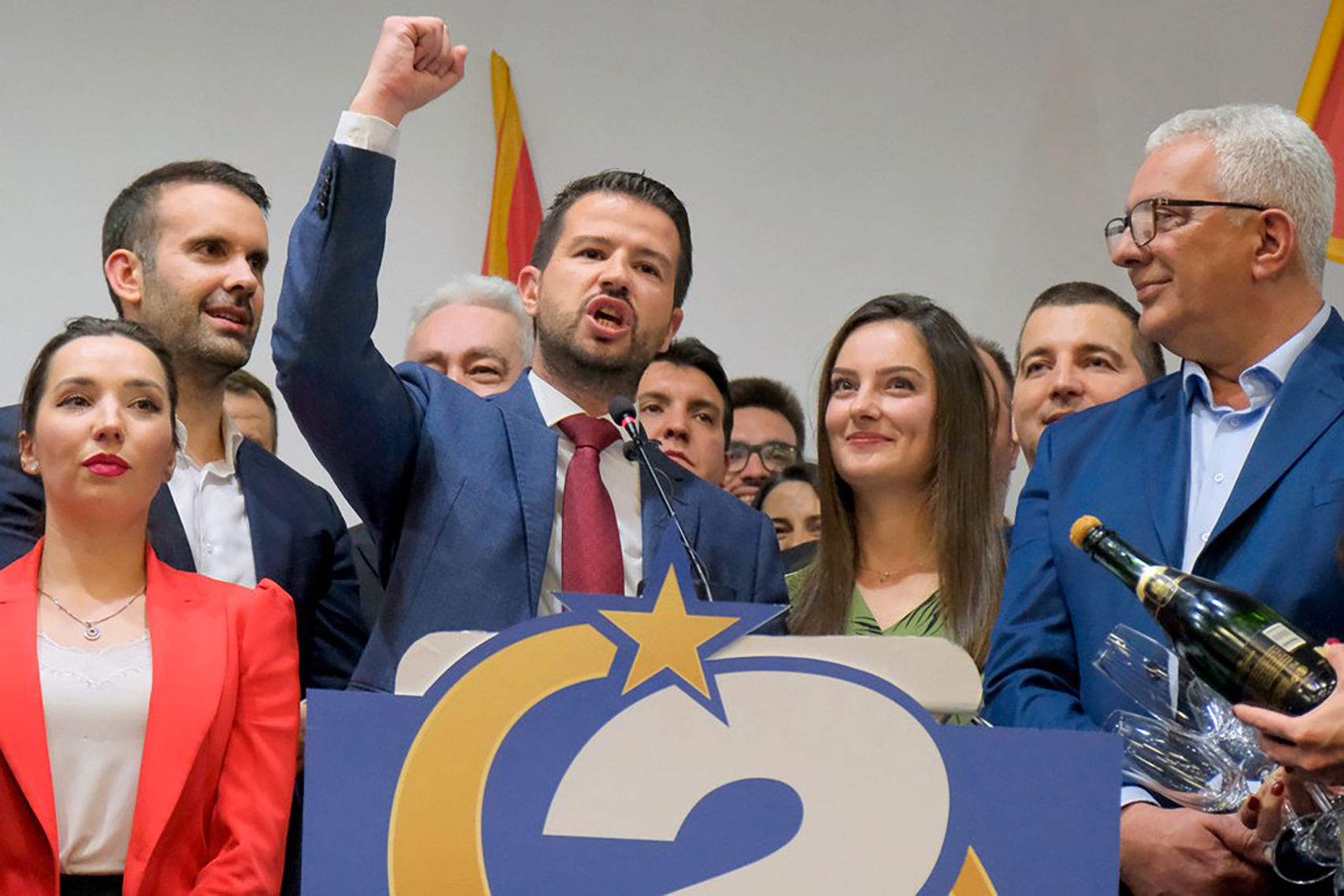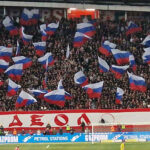President Jakov Milatović continues to spread optimism about Montenegro’s chances of becoming a member of the EU in the foreseeable future. His latest statements – at the Munich security conference – are the “pinkest” so far: Montenegro will be in Brussels in 2028!
Prime Minister Milojko Spajić is not far behind him, who with his “technocratic” vocabulary, which is devoid of elementary political formulations and encroachment on topics that cause controversies and confrontations. He tries to propagate a one-dimensional financial and economic platform of the Montenegrin European agenda. For Spajić, in fact, there are no problems in the political, social and cultural sphere – i.e. – he does not want to make statements about them.
At the same time, he claims that his government – in just three months – achieved enviable results, even in the security sector, as well as in terms of calming tensions and political (national) “reconciliation”. It is an understatement to say that such claims do not correspond to the truth. But that doesn’t worry Spajić much …
The reasons for Spajić’s (public) relaxation are easy to find in the ranks of the parties participating in his cabinet, but, even more so, among the political leaders of the parliamentary majority that elected his government. There, too, all but one – and these are pro-Serbian and pro-Russian political structures – are publicly enthusiastic and very ready to rhetorically support “Montenegro’s path to the EU”.
It sounds good and doesn’t cost much. That is: it costs nothing.
Diplomatic structures of the EU member states are slowly, step by step, being included in the official optimism. In the general (justified) reaction over the fact that the President of the Assembly, by title and Chetnik duke Andrija Mandić, for the meeting with the EU ambassador in Montenegro – the Romanian Oana Kristina Popa – raised the Serbian flag (which, apparently, will have its epilogue in the court), the most important detail about that meeting was forgotten: why did it happen in the first place?
Doubts, if there were any, why EU diplomacy so quickly agrees to perceive Mandić as valuable for talks and work on the European agenda, are quickly dispelled: Mandić recently visited the European Parliament. Conversations with him were restrained and emphatically protocolar – but there were conversations. That was certainly Mandić’s political success. Whether it has anything to do with concrete pro-European policy in Montenegro is another question. Is that why Montenegro is closer to Europe?
Instead of answering these rhetorical questions – which cannot hide the idealessness and futility of the policy promoted in the last four years by Oliver Varhelyi, the European Commissioner for Enlargement and Good Neighborly Relations – let’s take a brief look at what the situation with Montenegrin’s European agenda really looks like – both internally/regionally and in Europe/internationally.
First, there is no doubt that the ruling coalition (with the existing intention that, in a few months, the pro-Russian parties of the former Democratic Front will join the executive power) is emphatically European-oriented – on the level of rhetoric and public messages.
The composition and references of the cabinet and the policy implemented on the internal level – from security to culture and the media – are characterized by regression and a return to models and practices that are contrary to European standards. Political trials and indictments against journalists for “crime of opinion” have become a daily occurrence, while, on the other hand, national-chauvinist pamphlets and xenophobic messages from the media, which are under the control of the Serbian-Russian services and the church, remain without a reaction from the prosecution.
Second, in terms of organization and logistics, the Government constituted (reestablished) the Ministry of European Integration and elected a new Chief Negotiator. From both addresses, messages can be heard, which on a formal and logical level have nothing to complain about, but idling and the discrepancy between public messages and concrete progress is not a new phenomenon in Montenegro – of which there are (numerous) examples even before August 2020.
The new parliamentary majority cannot be denied that – finally – the Supreme State Prosecutor has been elected. But, on the other hand, the bitter political struggle within the ruling coalition regarding the National Security Agency and the entire security sector, as well as the selectivity and arbitrariness of the Prosecutor organization, including the Special State Prosecutor’s Office, show that one level of the problem is choosing new holders of these important state functions, and it is quite another phenomenon to organize their impartial and legal work – in accordance with European criteria and standards.
The third is a situation that European partners, unfortunately, do not take seriously enough and do not treat it with due care: the relationship towards Serbia, i.e. the influence of Serbia and its church, security services and media in Montenegro. For the purposes of this brief analysis, the obvious should be repeated: Serbia has no interest of Montenegro stepping forward towards the EU. Numerous exponents of Serbian politics in Montenegro certainly have that in mind. Official Podgorica is therefore very inert and restrained when it comes to the political and security response to malignant influences from Serbia – which, of course, cannot be separated from the destruction and sabotage coming from the Kremlin itself.
That is why the Montenegrin European agenda, in its essence, is limited and bounded by many – more or less visible – “red lines”, which concern the internal political scene, and the security services, and diplomacy, and the media…
European rhetoric is allowed. European practices are questionable and problematic.
Finally, fourthly, the situation in the EU itself is, to use a less painful expression, far from ideal. There is no lack of enthusiasm and promises towards Montenegro (as towards most countries of the Western Balkans) – but fatigue and contradictory tendencies in the EU itself are evident. When you add to that the upcoming elections for the European Parliament – things become even more uncertain. Who and how will form the new European Commission? Who will be the new Varhelyi, that is, how would it be better, who will be the new commissioner who will not look like Mr. Varhelyi, if EU enlargement is the real goal, and not some new anti-European variant/platform of the so-called “Open Balkans”?
When you add to that the historical tragedy of the criminal Russian aggression against Ukraine, on the one hand, and a dangerous scenario that would mean the victory of Donald Trump in the presidential elections in the USA, the European Union has on its agenda – and without mentioning other challenges and problems – a long list of burdensome priorities, for which, say, organizing national referendum for the admission of Montenegro as a new member of the EU – it will be very difficult to make it to the front page of important European affairs.
This brings us to the final conclusion: the party called “Europe Now!” is in power in Montenegro. It is in a coalition with pro-Serbian/pro-Russian parties, whose interest in the EU, in the West and in Western values, and especially in NATO, is -at best – at the level of false and empty rhetoric. At the same time, true pro-European parties and movements, the civil sector and individuals who truly believe in the need and possibility of Montenegro to be part of the family of European nations and states – are in the opposition.
“Pro-European” “Europe now!” party does not see a partner for the European agenda in the pro-European opposition. Logical, isn’t it – both in Podgorica and in Brussels!



